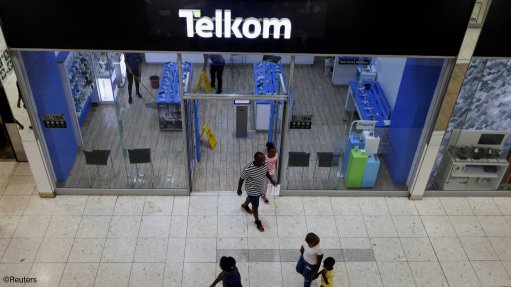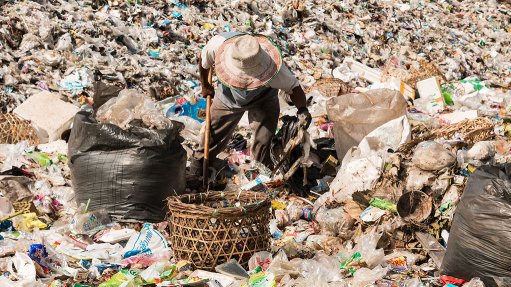The carpetbaggers
New people on the block, hoping to make a quick buck, were once named carpetbaggers. The term originated from the carpet bags (a form of cheap luggage made from carpet fabric) which many of these newcomers carried. The term came to be associated with opportunism and exploitation by outsiders.
Hold this thought. And now South Africa’s government will allow private investors and companies to build their own power plants with up to 100 MW of generation capacity without a licence. Boy, such good news, huh? Nope. The genie is out of the bottle. The octopus has escaped. Oh, you say, Machoy, how can you be so depressing? Well, let’s look at it. Let’s assume that 50 private power plants all take this on. That makes 5 000 MW. Upon what fuel will they run, dear Lisa, upon what?
Well. Coal. Gas. Solar. Wind. Diesel. Waste. Now, everybody knows that solar and wind energy are the cheapest installations. Or so it’s claimed. But in the middle of a windless night you can forget them too. Diesel generation is too expensive unless it’s used for demand lopping. Which brings us back to coal, the fuel of choice by Eskom. Who, having an economy of scale, can generate cheaper than any private power plant? So what does this imply? As a fact, Eskom is obligated to buy power from renewable-energy generation but will not be obligated to buy power from anybody else. Thus, the only real use of the 100 MW increase is so you can generate power for your own use and have Eskom for a standby. This will cost more than just using Eskom. But ho, which private consumer uses anything like 100 MW? Not even the biggest gold mine or largest factory.
Thus, the main (and only) way that these 100 MW generators can make money is to be available when the Eskom system is short of power. They can cut a deal whereby they run in parallel with Eskom and get paid some less-than-breakeven rate for the energy supplied and then get paid much more if Eskom needs them to go to full load. Sounds like a risky investment to me. Ah, but the carpetbaggers. Here’s how it works: an investor builds a 100 MW power station whose purpose is to launder money. Or to send it out of the country. Works like this: the investor funds the construction and operation of a 100 MW power station. This gets connected to Eskom and they agree to sell Eskom energy at 10% less than the costs incurred by Eskom to generate it. Naturally, they will make a loss but the difference between what it costs them to generate the power and the revenue they get from Eskom accumulates as a handy “assessed loss” which is offset against taxes. Then, every so often, the 100 MW plant will require maintenance, so in will fly a whole lot of massively overpriced parts and technicians and off to Europe will fly a whole lot of money which will create a further assessed loss as well as sending money out of the country.
Apart from the dubious speculation in the short term, as long as Eskom is battling the evils of a historically corrupt management, internal sabotage and poorly built power stations, buying power from private stations may make a business model but this will not be forever. In some cases, particularly mines, some real 100 MW generation projects are possible, being solar and coal (where you mine your own coal and generate power). But this hardly changes anything – there are already some +100 MW solar plants and coal burnt by you or Eskom still has the same result.
Thus, I really cannot see why everybody was lobbying for the limit to be raised. What effect will it have? Apart from the money laundering, sending money out of the country and assessed tax loss, is there somebody out there who can advise me? I’m very keen to find out.
Article Enquiry
Email Article
Save Article
Feedback
To advertise email advertising@creamermedia.co.za or click here
Announcements
What's On
Subscribe to improve your user experience...
Option 1 (equivalent of R125 a month):
Receive a weekly copy of Creamer Media's Engineering News & Mining Weekly magazine
(print copy for those in South Africa and e-magazine for those outside of South Africa)
Receive daily email newsletters
Access to full search results
Access archive of magazine back copies
Access to Projects in Progress
Access to ONE Research Report of your choice in PDF format
Option 2 (equivalent of R375 a month):
All benefits from Option 1
PLUS
Access to Creamer Media's Research Channel Africa for ALL Research Reports, in PDF format, on various industrial and mining sectors
including Electricity; Water; Energy Transition; Hydrogen; Roads, Rail and Ports; Coal; Gold; Platinum; Battery Metals; etc.
Already a subscriber?
Forgotten your password?
Receive weekly copy of Creamer Media's Engineering News & Mining Weekly magazine (print copy for those in South Africa and e-magazine for those outside of South Africa)
➕
Recieve daily email newsletters
➕
Access to full search results
➕
Access archive of magazine back copies
➕
Access to Projects in Progress
➕
Access to ONE Research Report of your choice in PDF format
RESEARCH CHANNEL AFRICA
R4500 (equivalent of R375 a month)
SUBSCRIBEAll benefits from Option 1
➕
Access to Creamer Media's Research Channel Africa for ALL Research Reports on various industrial and mining sectors, in PDF format, including on:
Electricity
➕
Water
➕
Energy Transition
➕
Hydrogen
➕
Roads, Rail and Ports
➕
Coal
➕
Gold
➕
Platinum
➕
Battery Metals
➕
etc.
Receive all benefits from Option 1 or Option 2 delivered to numerous people at your company
➕
Multiple User names and Passwords for simultaneous log-ins
➕
Intranet integration access to all in your organisation


















